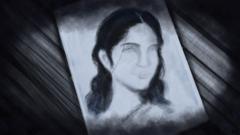

In the vibrant tapestry of Indian cinema, where dreams are woven on celluloid and stars are born with every sunrise, there exists a stark undercurrent of social stratification that has often relegated talent to the shadows. While the industry has showcased stories of resilience and societal change, it has also been a stage for perpetuating historical injustices, particularly those stemming from the deeply entrenched caste system. The story of P.K. Rosy, Malayalam cinema's first actress, stands as a poignant example of how caste oppression can erase a legacy.
Born as Rajamma in the early 1900s in the kingdom of Travancore (now Kerala), Rosy belonged to the Pulaya community, a Dalit community historically subjected to severe oppression. Members of the Pulaya community were considered "the lowliest," and faced horrific violence and discrimination. Despite these daunting challenges, Rosy dared to dream of a life beyond the confines of her caste.
In the 1920s, a time when women's participation in the film industry was heavily frowned upon, Rosy broke barriers by becoming the first female lead in Malayalam cinema, starring in the film "Vigathakumaran" (The Lost Child). This groundbreaking role, however, ignited a firestorm of caste-based backlash. Rosy, a Dalit woman, was cast to play an upper-caste Nair woman, an act that was seen as a transgression of social boundaries by many.
The reaction was swift and brutal. Upper-caste Hindus, unable to accept a Dalit woman portraying one of their own on screen, unleashed their fury. Mobs attacked her home, and she was forced to flee, losing everything she had. Some accounts even suggest that she was attacked and possibly killed, although concrete evidence remains elusive. Whatever the exact circumstances, Rosy was forced out of the industry and effectively erased from its history.
The film reel of "Vigathakumaran" was reportedly destroyed, and no known copies of the film exist today. The cast and crew have all passed away, leaving behind only fragments of Rosy's story. A few pictures from a contested press release and an unverified black-and-white photograph are among the only visual remnants of her existence as an actress.
For decades, P.K. Rosy's name faded into obscurity, her contribution forgotten, and her legacy buried under the weight of caste prejudice. It was only much later that film historians and activists began to unearth her story, bringing her struggle and sacrifice to light. In recent years, there have been efforts to acknowledge her pioneering role. In 2019, the Women in Cinema Collective named their film society after her, a symbolic gesture of recognition and remembrance.
Rosy's story is not unique. The Indian film industry has historically been dominated by upper-caste individuals, and discrimination against those from marginalized communities has been rampant. While there have been some shifts in recent years, with more filmmakers addressing caste-based issues in their work, the industry still has a long way to go in terms of representation and inclusivity.
The erasure of P.K. Rosy's legacy serves as a stark reminder of the power of caste and the systemic barriers that have prevented many talented individuals from marginalized communities from achieving their full potential in Indian cinema. Her story is a call to remember, to acknowledge the injustices of the past, and to work towards a more equitable and inclusive future for the industry. It underscores the importance of preserving the narratives of those who have been historically silenced and ensuring that their contributions are not forgotten.